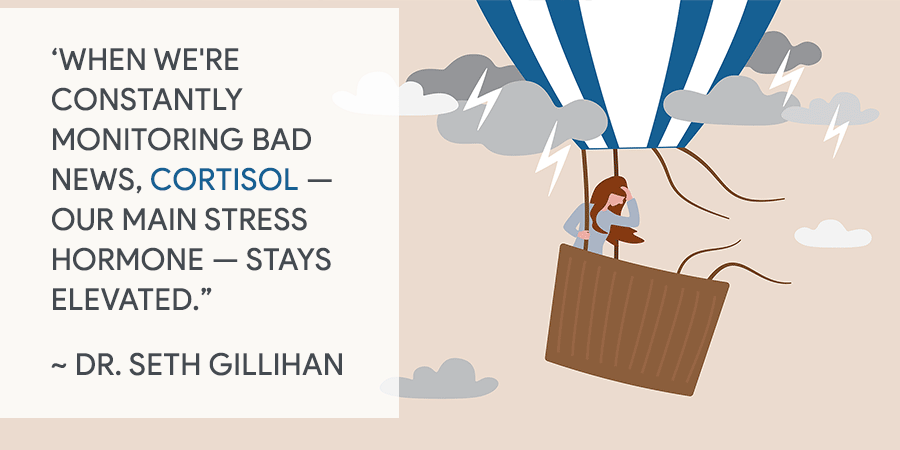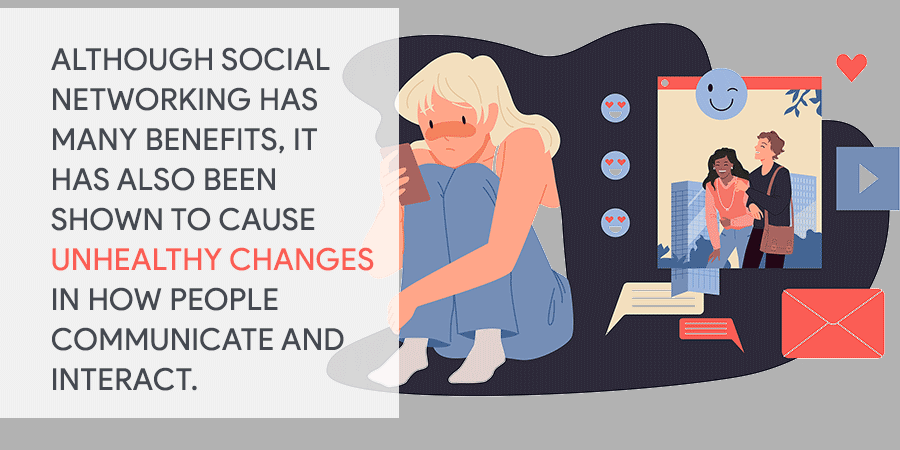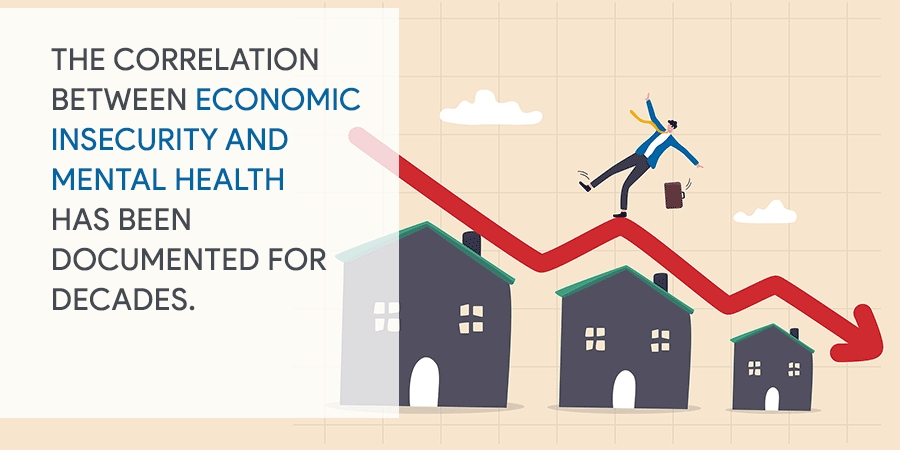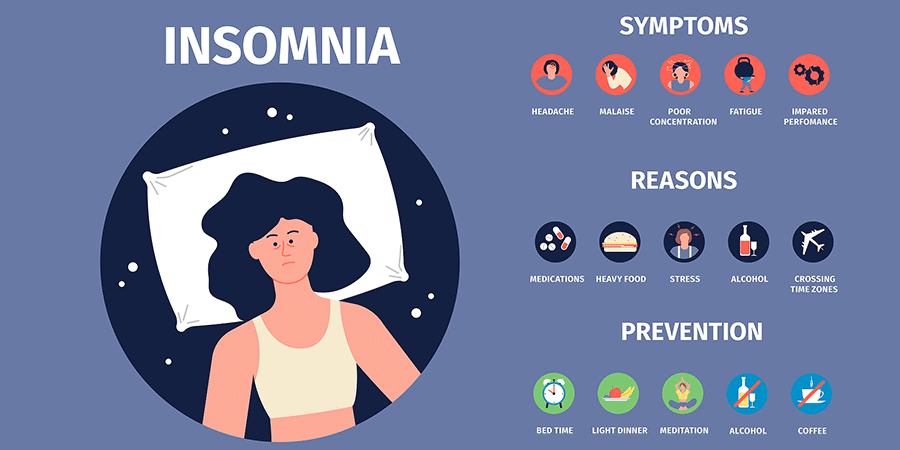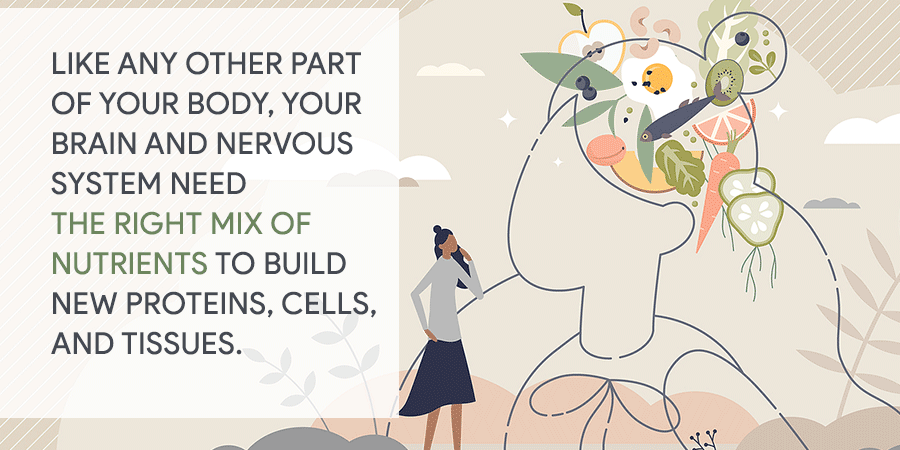Mental Health Decline – A Nationwide Crisis
Mental health decline is a nationwide crisis that is often ignored or forgotten. According to the National Alliance on Mental Illness, one in five adults in America experiences mental illness each year1. That’s 44 million people! The numbers are even higher for children and adolescents, with one in six developing a mental health disorder by age 18.
Despite these shocking statistics, mental health remains one of healthcare’s most underfunded and understudied areas. This has to change! We need to do more to support those struggling with mental health and work to prevent further decline. Only then will we be able to start reversing this tragic trend.
Mental health is a state of well-being in which every individual realizes their potential, can cope with the everyday stresses of life, can work productively and fruitfully, and can contribute to their community. Many factors may cause mental health decline; this article will explore some of the most common reasons, as well as signs and therapy options.
Common Reasons for Mental Health Decline
Increased Stress Levels
One of the primary reasons for the mental health decline in the United States is increased stress levels. In the last few years, the world has been battling several crises. It seems that we overcome one to enter another. Some crises, like the opioid fatalities, just increase. The result is hopelessness, despair, and depression.
According to clinical psychologist Dr. Seth Gillihan, author of Retro mindfulness, “When we’re constantly monitoring bad news, cortisol — our main stress hormone — stays elevated.” This not only suppresses our immune system but also creates feelings of anxiety and powerlessness.
Social Media Use
Although social networking has many benefits, it has also been shown to cause unhealthy changes in how people communicate and interact. Studies have indicated that the prolonged use of social networking sites may be related to depression, low self-esteem, anxiety, and social disorders, especially in children and adolescents.2 Additionally, social media can be a breeding ground for cyberbullying and, recently, the sale of lethal drugs such as illicit fentanyl. Although the jury is still out on whether some of these changes may cause psychiatric disorders, it is clear that social media can have a negative impact on mental health. Therefore, it is essential to use social media in moderation and to be aware of the potential risks.
Economic Insecurity
The correlation between economic insecurity and mental health has been documented for decades. A recent study, however, provides some of the most substantial evidence yet that experiencing economic hardship can lead to a decline in mental health.3 The study found that people who experienced unemployment, poverty, or low income were more likely to experience anxiety, depression, and other mental health problems. Human beings need to feel valuable and productive, which leads to higher self-esteem and better overall health. The findings of this study underscore the importance of policies that aim to improve education and labor in order to reduce economic insecurity and promote long-term financial stability. Without such interventions, the cycle of poverty and poor mental health is likely to continue.
Lack of Sleep
Sleep has an essential restorative function in ‘recharging’ the brain at the end of each day, just like a cell phone battery after prolonged use. Maintaining a regular sleep cycle allows your body to reset, optimizes brain functioning, and improves mood and mental health.
On the other hand, continuous poor sleep can be a significant risk factor for the development of major depressive disorder. Insomnia leads to feelings of depression and/or anxiety as well as worsening existing mental health conditions.4 Some of the emotional effects of not sleeping are low mood, anxiety, irritability, erratic behavior, and poor cognitive functioning and performance. Additionally, lack of sleep can also lead to physical health problems such as obesity, heart disease, stroke, and diabetes.
Many things can interfere with our ability to get a good night’s sleep. Some common culprits are stress, caffeine, alcohol, nicotine, blue light from screens, an irregular sleep schedule, and a bedroom that is too hot or too cold. By making some simple lifestyle changes and creating a healthy sleep environment, we can optimize our chances of getting a good night’s sleep.
Poor Diet
You may not realize it, but your brain and nervous system rely on proper nutrition to function properly. Like any other part of your body, your brain and nervous system need the right mix of nutrients to build new proteins, cells, and tissues. Without the right nutrients, your brain and nervous system will be unable to effectively perform their essential functions.5
Your body needs a variety of carbohydrates, proteins, and minerals to function correctly. Carbs are essential for providing your body with energy, while proteins are necessary for repairing and building new tissue. Minerals like iron and magnesium are also important for ensuring that your nervous system is functioning correctly. If you’re not getting enough of these essential nutrients, it can impact your brain and nervous system health in a negative way.
Make sure you’re eating a well-balanced diet to ensure your brain and nervous system get the nutrition they need to function properly. Getting the proper nutrients can help keep your mind sharp and your nerves healthy.
Limited Access to Mental Health Care
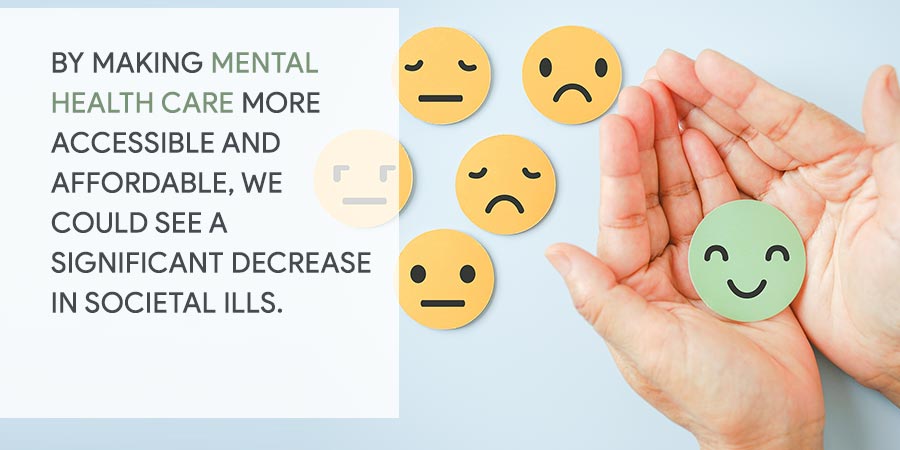
We continually invest in the consequences but never focus on the root problem. Increasing access to mental health care would help decrease these problems and lead to a healthier, happier society as a whole. By making mental health care more accessible and affordable, we could see a significant decrease in societal ills. It is time for us to invest in mental health care so that everyone can have the chance to live a happy, healthy life.
Signs Your Mental Health is Declining
Everyone has mental health, just as everyone has physical health. And just like physical health, mental health can decline. Here are some signs that your mental health might be declining:
You Are Relying on Alcohol or Drugs to Cope
People often turn to substances as a way to numb their emotions or escape from their problems. But instead of providing relief, this usually makes things worse in the long run. If you find that you’re drinking more than usual or using drugs to cope with your feelings, it’s a sign that your mental health is declining.
You Are Withdrawing from Friends and Activities
One of the first signs of depression is social withdrawal. If you used to enjoy spending time with friends, but now you prefer to be alone, it could be a sign that your mental health is deteriorating. Additionally, if you’re no longer interested in activities you used to enjoy, it’s another sign that something isn’t quite right.
You Are Having Difficulty Concentrating
If your mind is constantly racing and you can’t seem to focus on anything, it could be a sign of an underlying mental health issue. When anxiety or depression is left untreated, it can lead to cognitive problems like difficulty concentrating.
You Are Experiencing Changes in Your Sleep Patterns
Sleep disturbances are common in people with mental illness. If you’re finding it hard to fall asleep or stay asleep, it could be a sign that your mental health is declining.
You Are Having Changes in Your Appetite
Changes in appetite are another common symptom of mental illness. If you notice that you’ve been eating more or less than usual, it could be a sign that your mental health is deteriorating.
You Are Feeling Hopeless
Hopelessness is a common symptom of depression. If you find yourself feeling like there’s no point in anything anymore, it’s a sign that your mental health is not in a good place.
You Are Self-Harming
Self-harm is defined as any intentional damage to oneself. It’s often a way for people to cope with overwhelming emotions or numbing pain. If you’re harming yourself in any way, it’s a sign that your mental health needs attention.
You Are Experiencing Thoughts of Suicide
Suicide ideation — thinking about or making plans for suicide —is one of the most serious symptoms of mental illness. If you find yourself having thoughts of suicide, you must seek professional help immediately.
Mental illness is prevalent — 1 in 5 adults will experience a mental illness at some point in their lives. Just as importantly, though, mental illness is treatable. So if you are experiencing any of the above symptoms, please don’t hesitate to reach out for help. Your life is worth saving.
What to Do When Your Mental Health is Declining
There is no single magic bullet when it comes to improving mental health, but there are a number of strategies that can help. First, it is important to get regular exercise. Exercise releases endorphins, which have mood-boosting effects. It also helps to reduce stress levels and improve sleep quality. In addition, exercise can help to increase self-esteem and body confidence. Another important strategy for improving mental health is to eat a healthy diet. Eating nutritious foods helps to improve energy levels and mood, while also reducing the risk of developing conditions like anxiety and depression. Finally, it is important to socialize regularly and develop strong relationships with family and friends. These relationships provide emotional support and can act as a buffer against stress and adversity. By implementing these strategies, you can take steps to improve your mental health and well-being.
Call now to speak confidentially with an addiction expert.
Let Domus Retreat be your partner as you navigate whatever life may bring. Because wherever your journey takes you, you are not alone in this.Call 1-866-713-3869
Sources:
- National Alliance on Mental Illness: Mental Health by the Numbers
- American Psychological Association: Why Young Brains are Especially Vulnerable to Social Media.
- National Library of Medicine: Economic insecurity: A socioeconomic determinant of mental health
- Sleep Foundation: Mental Health and Sleep
- Sutter Health: Eating Well for Mental Health
Reviewed by Clare Waismann, RAS / SSUDCC, Founder of Domus Retreat®
All topics for the DomusRetreat.com blog are selected and written based on high editorial quality standards and cited source material. Clare Waismann is a Registered Addiction Specialist (RAS), Substance Use Disorder Certified Counselor (SUDCC), and founder of Domus Retreat and Waismann Method®. She reviews articles for accuracy, credibility, and relevancy. Clare Waismann is an authority and expert on opioid dependence and related topics covered on the DomusRetreat.com blog. Please see our Terms of Service for additional information and disclaimers regarding third-party sources and content for informational purposes only.



